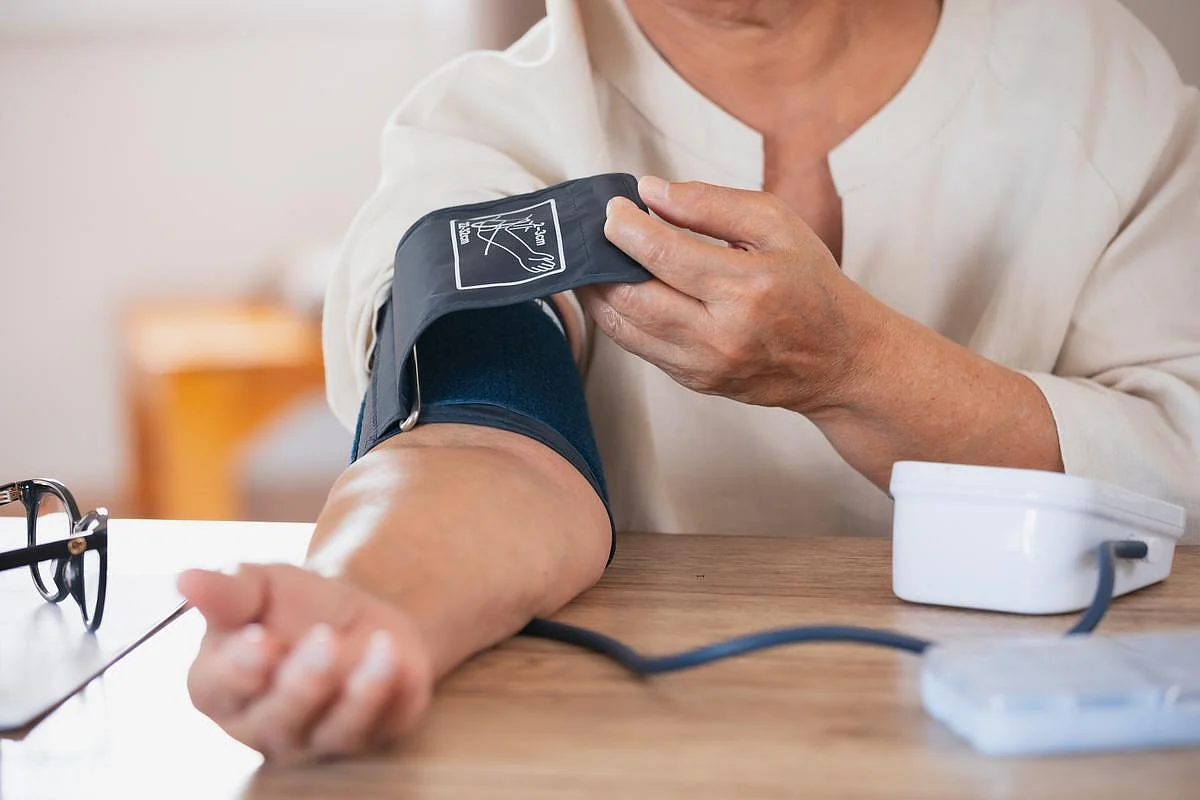Tight Blood Pressure Control Both Healthy And Cost-Effective, Projections Say
By Dennis Thompson HealthDay Reporter
 via HealthDay
via HealthDayWEDNESDAY, Aug. 20, 2025 — Tight control over blood pressure is not only good for patients, but is also cost-effective health care, a new study says.
Controlling blood pressure to below 120 systolic prevents more heart attacks, strokes, cases of heart failure and other heart-related health problems, compared with higher targets, researchers report in the Annals of Internal Medicine.
It’s also cost-effective, with tight blood pressure control increasing treatment expenses only slightly, researchers found.
“This study should give patients at high cardiovascular risk and their clinicians more confidence in pursuing an intensive blood pressure goal,” lead researcher Karen Smith, an investigator at Brigham and Women’s Hospital in Boston, said in a news release.
“Our findings suggest the intensive less than 120 mm/Hg target prevents more cardiovascular events and provides good value, and this holds true even when measurements aren’t perfect,” she said.
Current blood pressure guidelines define high blood pressure at 130 systolic or higher. Systolic blood pressure is the pressure within blood vessels during a heartbeat.
Normal blood pressure is less than 120 systolic, and blood pressure between 120 and 129 systolic is considered elevated, according to the American Heart Association.
For the new study, researchers combined data gathered between 2013 and 2018 by the National Health and Nutrition Examination Survey, the groundbreaking Systolic Blood Pressure Intervention Trial (SPRINT), and other published studies.
The team used this data to simulate lifetime heart health risks for patients over 50 years old whose systolic blood pressure was controlled to less than 120; less than 130; or less than 140.
Researchers also considered the potential risk of serious side effects posed by blood pressure medications, and accounted for common errors made in regular blood pressure readings.
Even when including occasionally erroneous blood pressure readings, the researchers’ model found that the 120 blood pressure target prevented more heart health problems than the 130 target.
The lower target also was more expensive, due to more prescriptions and doctor visits, and led to more adverse events related to treatment, such as falls, kidney damage, low blood pressure and slow heart beat, researchers found.
Nevertheless, the 120 target remained cost-effective compared to the higher targets, researchers concluded.
For example, the target of less than 120 was associated with a cost of $42,000 per life-year gained, only $1,300 more than the 130 target, results show.
However, such tight blood pressure control isn’t necessarily a good idea for everyone, Smith said.
“Given the additional risk of adverse events related to antihypertensives, intensive treatment will not be optimal for all patients,” Smith warned. “Patients and clinicians should work together to determine the appropriate medication intensity based on patient preferences.”
Sources
Disclaimer: Statistical data in medical articles provide general trends and do not pertain to individuals. Individual factors can vary greatly. Always seek personalized medical advice for individual healthcare decisions.
Source: HealthDay
Posted : 2025-08-21 00:00
Read more

- Worsening of Overactive Bladder Seen in Patients Undergoing Gender-Affirming Vaginoplasty
- Ultra-Marathon Running Depletes Athletes' Red Blood Cells, Study Finds
- Baby Maintenance: Bath, Nails, and Hair
- Novo Nordisk Cuts Prices of Ozempic and Wegovy Starting January 2027
Disclaimer
Every effort has been made to ensure that the information provided by Drugslib.com is accurate, up-to-date, and complete, but no guarantee is made to that effect. Drug information contained herein may be time sensitive. Drugslib.com information has been compiled for use by healthcare practitioners and consumers in the United States and therefore Drugslib.com does not warrant that uses outside of the United States are appropriate, unless specifically indicated otherwise. Drugslib.com's drug information does not endorse drugs, diagnose patients or recommend therapy. Drugslib.com's drug information is an informational resource designed to assist licensed healthcare practitioners in caring for their patients and/or to serve consumers viewing this service as a supplement to, and not a substitute for, the expertise, skill, knowledge and judgment of healthcare practitioners.
The absence of a warning for a given drug or drug combination in no way should be construed to indicate that the drug or drug combination is safe, effective or appropriate for any given patient. Drugslib.com does not assume any responsibility for any aspect of healthcare administered with the aid of information Drugslib.com provides. The information contained herein is not intended to cover all possible uses, directions, precautions, warnings, drug interactions, allergic reactions, or adverse effects. If you have questions about the drugs you are taking, check with your doctor, nurse or pharmacist.
Popular Keywords
- metformin obat apa
- alahan panjang
- glimepiride obat apa
- takikardia adalah
- erau ernie
- pradiabetes
- besar88
- atrofi adalah
- kutu anjing
- trakeostomi
- mayzent pi
- enbrel auto injector not working
- enbrel interactions
- lenvima life expectancy
- leqvio pi
- what is lenvima
- lenvima pi
- empagliflozin-linagliptin
- encourage foundation for enbrel
- qulipta drug interactions
